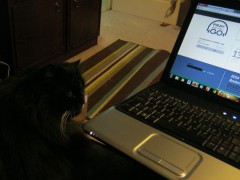So, now I have a draft of my conference paper and the tweaking has begun... words out, words in, sentences revised, deleted, added... it is no mean feat! Even the abstract is a moving target - I sent a copy to someone earlier this morning and now it has changed slightly!
Today one of my longest established minsiter-theologian friends is going to give the first draft a once over. That's quite scary. I know she will be gentle and kind cos that's the kind of person she is, but I need some help to sharpen it up before it goes 'live' in NZ. I've had a few offers of editorial reads - and I am not ignoring them, just want it to be a bit sharper first as it is probably the most personal thing I've ever written for public consumption (which of course exemplifies the entire thesis...).
Anyway, taking my courage in both hands, here is the current draft abstract:
As an ordained minister I have sat alongside many people with cancer – from someone hearing the news of her diagnosis to someone else whose journey with the disease had just been completed in his death. In pastoral contexts, I have shared the bewilderment of families, refused to offer glib answers to tough questions, and modelled a response many tell me they have found helpful. When I was diagnosed with cancer in August 2010 my response, undoubtedly shaped by my pastoral experience and practice, was that I wanted to be honest and open, free to name anger, fear, doubts or questions that arose along the way. Whilst able in some measure to achieve this, again several people have told me they found my honesty and openness helpful, it rapidly became clear that "the minister is still the minister" and that the responsibility of caring for others affected my quest for authenticity. In this paper I reflect on some of my own experiences in an endeavour to explore attributes of 'authenticity' for a religious professional living with cancer.
